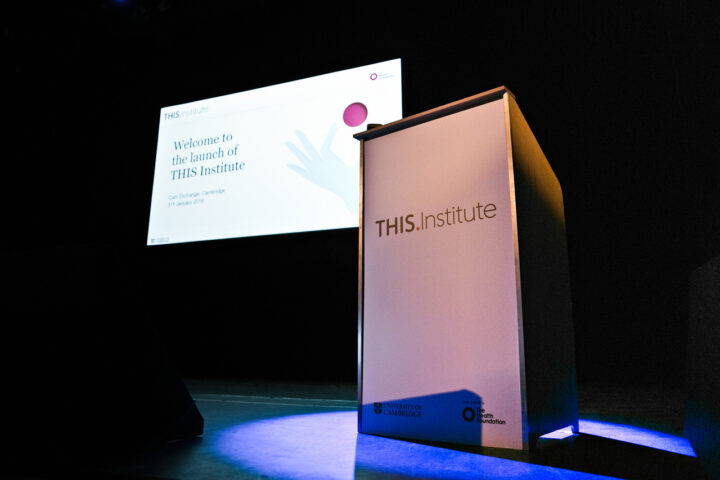One year on

When THIS Institute launched with a mission to provide an evidence base for healthcare improvement, we were very much charting a new path.
We set off on 31 January 2018 with our launch event. As well as fantastic presentations, including one by the patient-doctor Liz O’Riordan, the event premiered a play. Funded by the Wellcome Trust, Not Quite Right follows one patient’s journey through the health system. It uses multiple perspectives to demonstrate the importance of high quality evidence about healthcare improvement and invites audiences to join in. Its success has encouraged us to develop further theatre-based engagement activities: we’ve been privileged to work with staff groups and mental health service users to co-produce four highly interactive forum theatre workshops. We’re now putting the finishing touches to an interactive video inspired by the theatre piece, which we hope will stimulate further conversations about the challenges and questions in healthcare improvement.
The day following THIS Institute’s launch, we opened our research fellowship programme. Offering fellowships at UK universities for PhD students, early career researchers, and senior academics, it is an exciting scheme designed to increase capacity and capability for the study of healthcare improvement across the UK. Following a series of competitions, nine universities were awarded 14 THIS Institute fellowships. We are looking forward to working with this wonderful group of people, and to opening applications for further fellowships in 2019.
The development of our scientific strategy was a significant achievement. Firmly rooted in principles developed in collaboration with our partners during our start-up phase in 2017, it sets our scientific direction for the next three years. From this strategy has come a portfolio of applied research programmes that target different priorities and use a range of scientific methods. We’ll be adding details to the research pages of our website as they become available. We’ve also established an engagement and involvement advisory board that will, among other things, ensure that our research is firmly locked on to the concerns of NHS staff and patients throughout the research lifecycle.
Our approach to citizen science took several important steps forward in the past year. We published a series of reports (1, 2, 3) on what’s known about it so far, and, through a process of extensive consultation and engagement, developed the visual style and name for our new platform: Thiscovery. We’ve been working closely with technical partners to develop its core functionality and, after a test period, we’ll soon be ready to run our first projects. Enabling many people to participate in research through small but valuable contributions, Thiscovery is set to make a real difference to how we study improvement.
To support all this work, and to make an infrastructural contribution to the conduct of improvement research, we are collaborating with the Health Research Authority to explore a new approach to the governance of improvement evaluations. We are also working with the Academy of Medical Royal Colleges to design a national system for healthcare improvement research that can be recognised for accredited educational and professional development purposes.
A personal highlight of the last year for me was in October, when healthcare improvement studies took centre stage at the Royal College of Physicians’ (RCP) Harveian Oration. Established in 1656, the oration is delivered annually by a leading doctor or scientist who speaks about important issues in their field. I was honoured to be invited to deliver this year’s oration, and, much more importantly, was thrilled by this signal that our field of study has “arrived” as a serious scientific enterprise directly relevant to the practice of healthcare.
We’ve spent much of our first year setting up for the journey ahead, making sure that we have sound foundations in place, establishing partnerships, and building the team to do the work.
As the setup phase ends, we’re focusing our energy on building our portfolio of research programmes. We intend that these programmes will be highly relevant, practical, and grounded in the priorities of patients and NHS staff – with the potential to tackle deep-rooted challenges in both the practice and the study of improvement.
As we continue into uncharted territory, we look forward to sharing more developments with you. After all, we’re all navigating the path to healthcare improvement together.
I’d like to take this opportunity to thank the two exceptional organisations that made this possible, the Health Foundation and University of Cambridge, and also to you all for your continued enthusiasm and support.

Mary Dixon-Woods FAcSS FMedSci FRCP
Director, THIS Institute
The Health Foundation Professor of Healthcare Improvement Studies
Wellcome Trust Investigator
Co-Director, Cambridge Centre for Health Services Research
Professorial Fellow, Homerton College
NIHR Senior Investigator